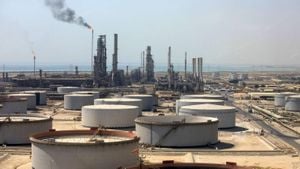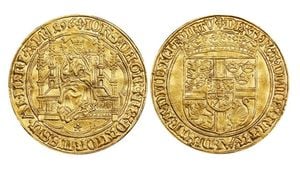The Philippine Senate has recently made significant strides toward promoting sustainable economic development through marine stewardship. On Monday, the Senate approved the Blue Economy Act, establishing a framework dedicated to the conservation and sustainable use of coastal and marine resources.
This groundbreaking legislation, known as Senate Bill 2450, received overwhelming support with 21 affirmative votes, and no dissenting votes or abstentions recorded during the plenary session. The act aims to embrace the sustainable utilization of oceanic resources, driving economic growth, enhancing livelihoods, and bolstering the health of the Philippines’ marine ecosystems.
The Blue Economy Act seeks to preserve the rich maritime heritage of the country and recognize the myriad economic, social, cultural, and historical values inherent to the nation’s coastlines and waters. It also emphasizes educating the public on the importance of respecting and valuing these ecosystems, paving the way for greater social responsibility.
Senator Loren Legarda, who played a pivotal role as the principal author and sponsor of the bill, highlighted the act's transcendent nature, underscoring its alignment with international sustainable development goals. The United Nations General Assembly has previously acknowledged the urgent need to protect and leverage the potential of oceans and marine resources as enshrined within the Sustainable Development Goals (SDGs).
During her remarks, Legarda referenced the World Bank's influential 2017 report titled “The Potential of the Blue Economy,” which pinpointed vast, untapped opportunities within the coastal and oceanic areas of nations yet to fully realize their potential. These insights point to not only economic prospects but also the sustainable management of these resources to benefit current and future generations.
Legarda noted the staggering biodiversity found within the Philippines, particularly within the Coral Triangle, home to some of the world’s most diverse marine ecosystems. She drew attention to natural gas deposits and the Philippine Rise, which covers about 13 million hectares underwater, as examples of the valuable resources lying dormant, ready for sustainable development.
"A significant portion of the Philippine population, 60 percent, calls the coast home, with fisherfolk representing the second highest poverty-stricken sector," Legarda pointed out. She stressed the urgent need to address this imbalance through the Blue Economy framework, which promises to level the playing field by integrating coastal and marine resources more significantly within development plans.
The legislation aims to reframe the narrative around coastal management, elevates the status of marine resources as integral to the national economy, and enhances their contributions toward achieving public welfare and national prosperity. Legarda reiterated the public's commitment required to conserve, protect, and prosper alongside their marine environment.
"The Blue Economy bill was pivotal within the LEDAC agenda, providing solutions to pressing challenges faced by coastal communities," she remarked. By actively rewriting how the nation approaches coastal resources, the Blue Economy Act aspires to create lasting environmental, social, and economic benefits.
The immediate passage of this bill highlights the Philippine government's recognition of the twin obligations to sustainably manage its vast maritime territory and uplift vulnerable coastal communities. By prioritizing these goals, the Blue Economy Act aims to secure the future of both the economy and the marine environment for generations to come.
This development is poised to influence not just local fisheries but also broader economic opportunities tied to marine tourism, conservation efforts, and sustainable practices. Strengthening the connection between marine conservation and economic growth could be the pathway to securing the Philippines’ position as a leader in blue economy initiatives.
The passage of the Blue Economy Act marks a promising venture for the Philippines, showcasing how policies can guide sustainable development goals. This forward-thinking legislation is set to transform how resources are utilized and protected, underlining the importance of integrating environmental stewardship with economic aspirations.
With lawmakers firmly backing this initiative, advocates hope it signals the beginning of transformative changes for coastal communities nationwide. If successful, it will not only address issues of poverty and resource management but also place the Philippines at the forefront of global marine conservation.



